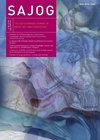利用超声引导的高强度聚焦超声研究脂肪组织厚度与肌瘤收缩之间的关系
IF 0.3
Q4 OBSTETRICS & GYNECOLOGY
引用次数: 0
摘要
背景超声引导的高强度聚焦超声(USgHIFU)用于无创治疗有症状的子宫肌瘤。HIFU光束穿过的脂肪组织的厚度被认为与治疗结果的降低有关,尽管证据是轶事。目标。确定脂肪组织的厚度是否影响治疗后子宫肌瘤体积收缩的百分比。方法。在Chris Hani Baragwanath学术医院(CHBAH)对2015年10月11日至2018年4月11日期间接受USgHIFU治疗的有症状子宫肌瘤患者进行了一项回顾性研究。磁共振成像(MRI)图像用于测量子宫肌瘤的脂肪组织厚度和体积收缩百分比。使用线性回归来确定脂肪组织厚度与治疗后子宫肌瘤体积收缩百分比之间的相关性。结果。共有71名女性患者参加了CHBAH HIFU诊所的研究。平均脂肪组织厚度为17.49mm(95%置信区间(CI)14.86-19.73)。治疗前后纤维瘤的平均体积分别为176 mL(95%CI 123.26-208.57)和109 mL(95%CI71.75-141.73)。平均纤维体积减少44.68%(p<0.0001)。我们发现脂肪组织厚度和纤维体积比的变化之间没有显著关系。结论。目前尚不清楚使用USgHIFU消融有症状的子宫肌瘤时,脂肪厚度是否会影响治疗结果。本研究未发现HIFU治疗后脂肪组织厚度与子宫肌瘤缩小之间存在相关性。我们的研究结果表明,应审查USgHIFU治疗子宫肌瘤的排除标准。本文章由计算机程序翻译,如有差异,请以英文原文为准。
Association between adipose tissue thickness and fibroid shrinkage using ultrasound-guided high‑intensity focused ultrasound
Background. Ultrasound-guided high-intensity focused ultrasound (USgHIFU) is used to noninvasively treat symptomatic uterine fibroids. The thickness of the adipose tissue that the HIFU beam travels through is thought to be associated with decreased treatment outcome, although the evidence is anecdotal. Objectives. To determine whether the thickness of adipose tissue affects the percentage volume shrinkage of the uterine fibroid after treatment. Method. A retrospective study was performed at Chris Hani Baragwanath Academic Hospital (CHBAH) on patients who were treated with USgHIFU for symptomatic uterine fibroids between 11 October 2015 and 11 April 2018. Magnetic resonance imaging (MRI) images were used to measure the adipose tissue thickness and the percentage volume shrinkage of the uterine fibroid. Linear regression was used to determine an association between adipose tissue thickness and the percentage volume shrinkage of the uterine fibroid after treatment. Results . A total of 71 female patients who attended the CHBAH HIFU clinic were included in the study. Mean adipose tissue thickness was 17.49 mm (95% confidence interval (CI) 14.86 - 19.73). Mean pre- and post-treatment volume of the fibroid was 176 mL (95% CI 123.26 - 208.57) and 109 mL (95% CI 71.75 - 141.73), respectively. The mean fibroid volume reduction was 44.68% ( p <0.0001). We found no significant relationship between adipose tissue thickness and change in volume ratio of the fibroid. Conclusion . It is unclear whether adipose thickness affects treatment outcome when symptomatic uterine fibroids are ablated using USgHIFU. This study found no correlation between adipose tissue thickness and uterine fibroid shrinkage after HIFU treatment. Our findings suggest that the exclusion criteria for USgHIFU treatment of uterine fibroids should be reviewed.
求助全文
通过发布文献求助,成功后即可免费获取论文全文。
去求助
来源期刊

South African Journal of Obstetrics and Gynaecology
Medicine-Obstetrics and Gynecology
CiteScore
0.40
自引率
0.00%
发文量
5
审稿时长
15 weeks
期刊介绍:
The SAJOG is a tri-annual, general specialist obstetrics and gynaecology journal that publishes original, peer-reviewed work in all areas of obstetrics and gynaecology, including contraception, urogynaecology, fertility, oncology and clinical practice. The journal carries original research articles, editorials, clinical practice, personal opinion, South Africa health-related news, obituaries and general correspondence.
 求助内容:
求助内容: 应助结果提醒方式:
应助结果提醒方式:


